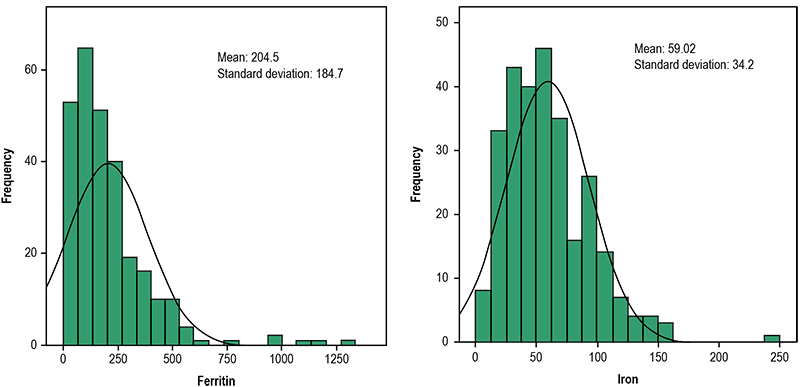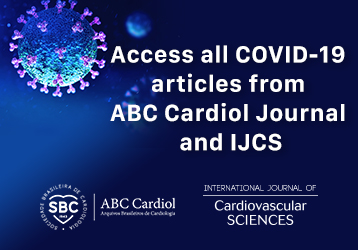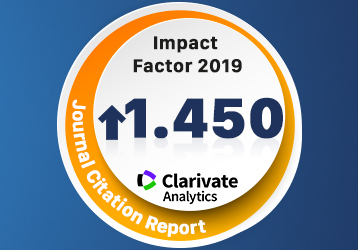Volume 111, Nº 2, August 2018
DOI: http://www.dx.doi.org/10.5935/abc.20180116
ORIGINAL ARTICLE
Prognostic Impact of Iron Metabolism Changes in Patients with Acute Coronary Syndrome
Tatiana Duarte
Sara Gonçalves
Catarina Sá
Rita Rodrigues
Rita Marinheiro
Marta Fonseca
Filipe Seixo
Rui Caria

Figure 1 – Distribution of serum levels of iron and ferritin in the population.
Abstract
Background: Iron metabolism disorders have been associated with an increased risk of cardiovascular events. However, the prognostic impact on patients (pts) with acute coronary syndrome (ACS) has yet to be clarified.
Objective: To determine the prognostic value of serum iron and ferritin levels in pts with ACS in the short and long-term.
Methods: Consecutive pts admitted to a coronary care unit with a diagnosis of ACS, for a period of 2 years, were evaluated. The population was divided into tertiles of serum iron and ferritin distribution. The primary adverse events were the occurrence of in-hospital death or heart failure (HF) and death or HF at 1 year of follow-up.
Results: We studied 280 pts (73% males; mean age 68 ± 13 years). The mean levels of serum iron and ferritin were 59 ± 34 mcg/dL and 205 ± 185 ng/mL, respectively. Patients included in the 1st tertile of serum iron (≤ 40 mcg/dL) had a higher rate of adverse events, in-hospital and after 1 year. Lower and higher levels of ferritin (1st and 3rd tertiles, ≤ 110; >219 ng/ml, respectively) were associated with a higher incidence of HF during hospitalization and death at 1 year. A ferritin value >316 ng /mL was an independent risk factor for death at 1 year (adjusted OR: 14; 95%CI: 2.6 to 75.9).
Conclusion: In this population, iron metabolism alterations were associated with a higher rate of adverse events and higher ferritin levels constituted an independent mortality predictor in the long-term. (Arq Bras Cardiol. 2018; 111(2):144-150)
Keywords: Acute Coronary Syndrome; Iron Metabolism Disorders; Prognostic.















